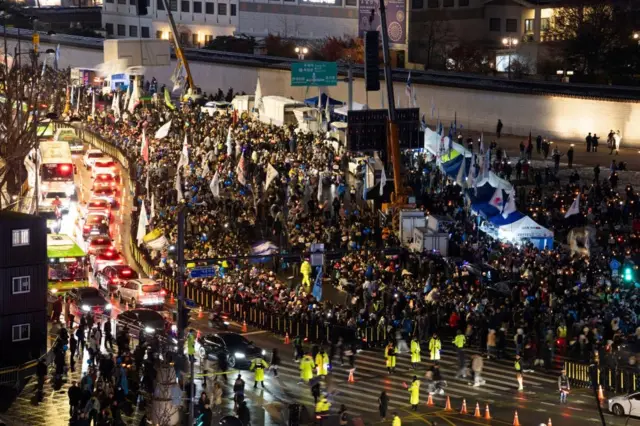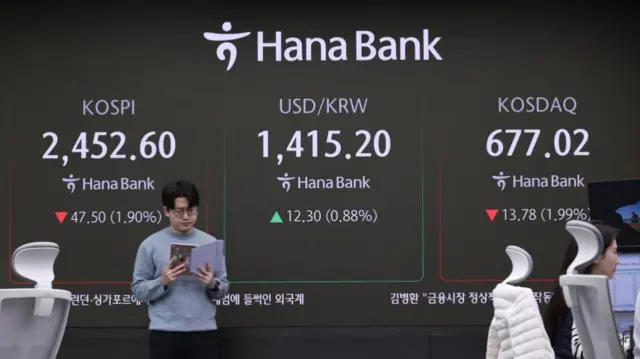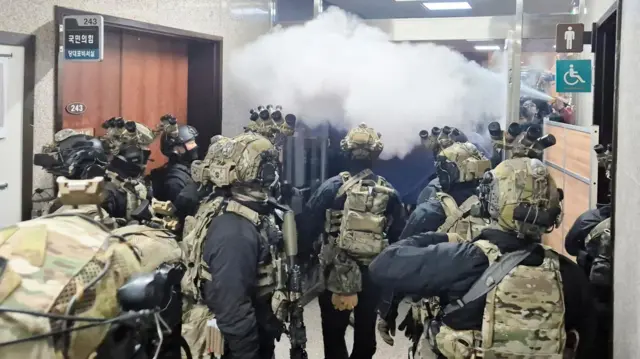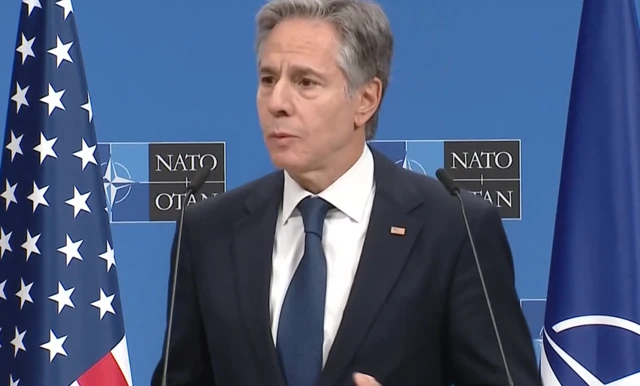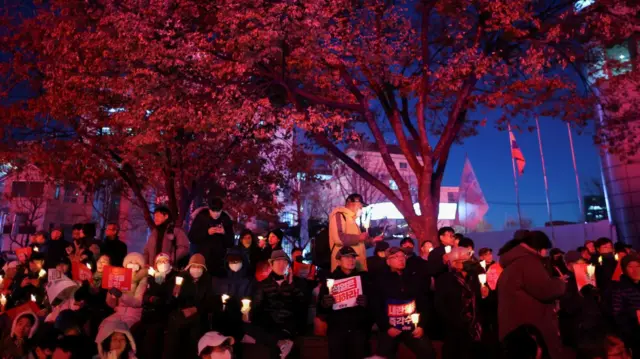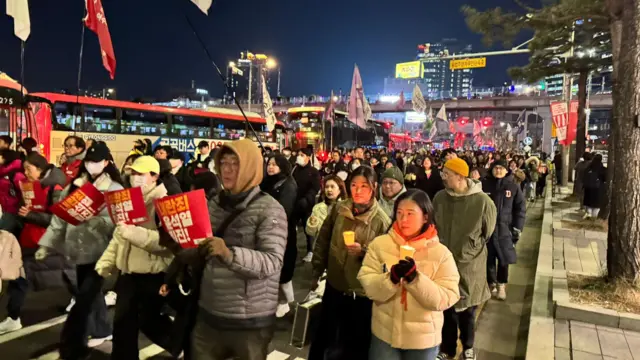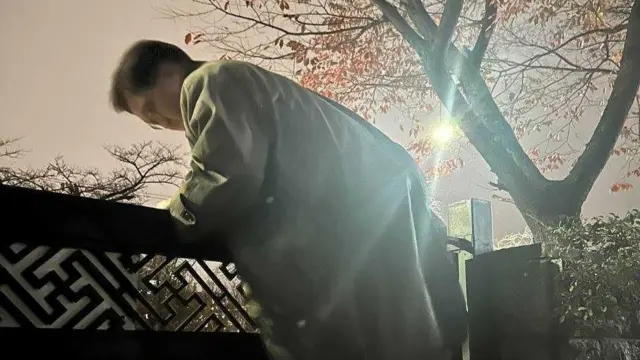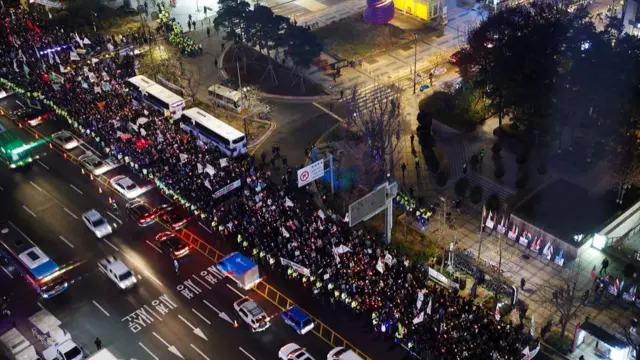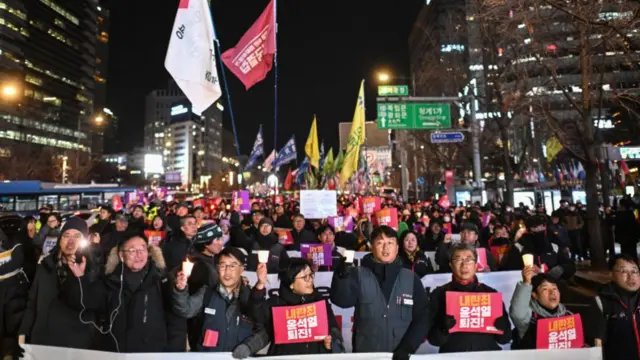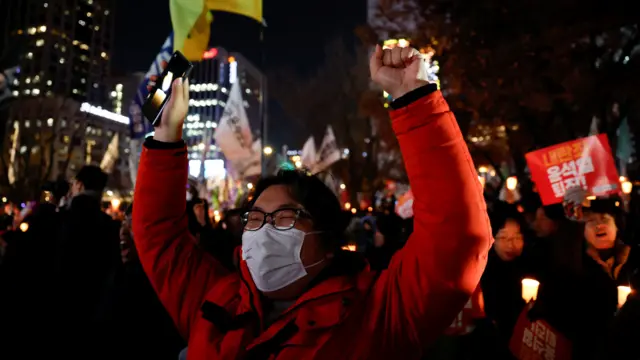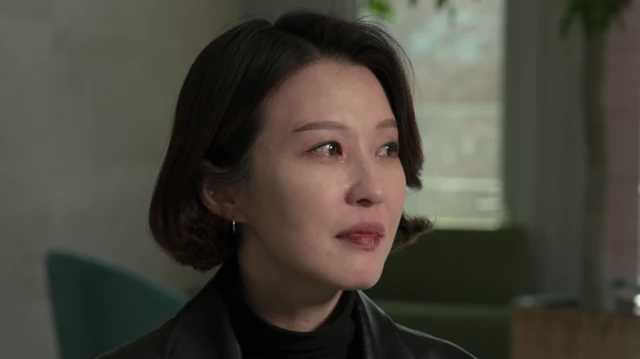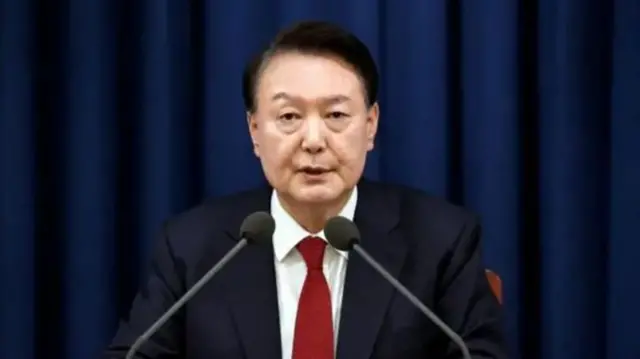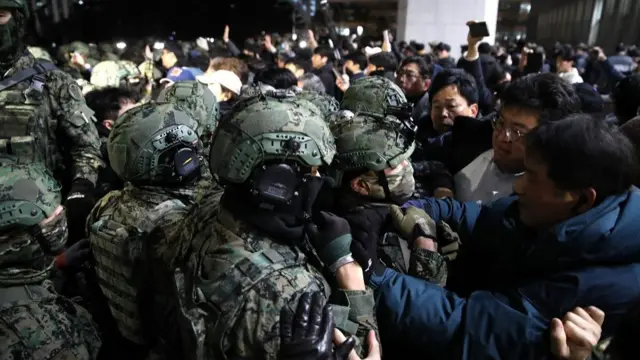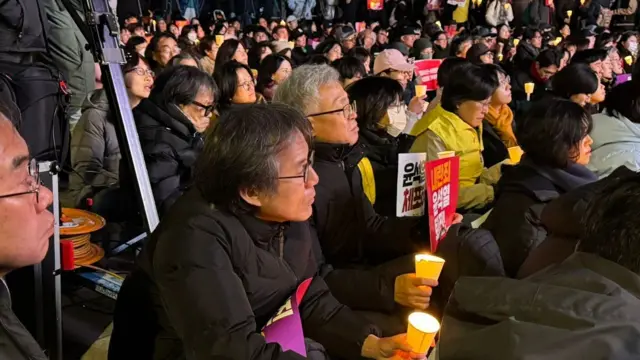Twenty four hours of turmoil, as president now faces impeachmentpublished at 14:32 GMT 4 December 2024
It's nearing midnight in South Korea, and we're now closing this live page. Here's the latest:
- Opposition politicians have begun impeachment proceedings for President Yoon Suk Yeol, after his botched attempt to impose martial law on Tuesday night - parliament will vote on impeachment later this week
- As a reminder, Yoon imposed martial law for a few hours, facing an immediate backlash and calls for its reversal, which he finally relented and did in the early hours of Wednesday
- Defence minister Kim Yong-hyun is also facing impeachment, and has offered his resignation, after apologising and taking full responsibility
- Other senior staff have also proposed to quit, though resignations must be accepted by the president
- Protests continued throughout today and into the evening, as people called for Yoon to go
To read more, we've got an explainer on what martial law is and why it was declared, as well as a moving account from a protester who grabbed a gun pointed at her.
There's also a run-down of how the night unfolded, and our correspondent Laura Bicker has answered the question that everyone's been asking: what was the president thinking?

